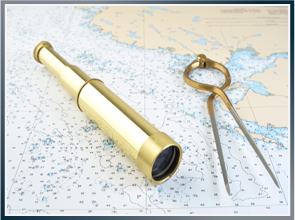How Maritime Workers Can Avoid Fatigue
 The GCaptain publication makes a very apt observation that shipping culture often equates hard work with fewer hours of sleep. However, studies have shown that who is awake for 17 hours straight can be comparable to a person with a .05 blood alcohol content level. This is especially applicable to fatigued maritime workers.
The GCaptain publication makes a very apt observation that shipping culture often equates hard work with fewer hours of sleep. However, studies have shown that who is awake for 17 hours straight can be comparable to a person with a .05 blood alcohol content level. This is especially applicable to fatigued maritime workers.
Given all of the studies that prove time and time again that fatigue is a direct contributory factor in maritime accidents, it is safe to say the maritime industry is a little behind the times in adapting practices that would prevent sleep deprivation. Even during the time the minimum manning requirements were put into action, these requirements still did not take into consideration that the amount of crewmembers is irrelevant to safely operate on a ship if they are all drop-dead tired.
Errors in judgement, decision making and reaction time are severely impaired by fatigue, yet the culture maritime companies have built applauds the ability for mariners to push themselves to the brink of exhaustion. According to the Journal of Environmental Research and Public Health, seafarers who are willing to work while extremely fatigued are seen as “professional” and many strongly believe fatigue just “comes with the job.” However, the Institute of Medicine Committee on Sleep Medicine and Research has proven that workers who are highly fatigued are 70 percent more likely to be involved in accidents.
Culture Changes Need to Be Made in How Maritime Workers Regard Fatigue
While it is understandable for maritime workers to want to maximize their income and working overtime is to be expected, there are steps maritime workers can take in order to avoid accidents caused by fatigue, including:
- Comply with maritime regulations that dictate minimum hours of rest and maximum hours of work
- Companies must schedule drills that minimize sleep disturbance
- Schedule work that may be hazardous if done incorrectly during the day, when crewmembers have the most energy
- Companies must increase awareness about the risks associated with sleep deprivation
- Eat regular, balanced meals and limit caffeine intake before a rest period
- Take strategic naps during breaks
- When assigning work, management should break up monotonous tasks to help workers keep alert
The specialized nature of the maritime industry requires high levels of concentration and alertness. However, fatigue specifically impairs performance and alertness. Bearing that in mind, there needs to be some culture changes to bring a more severe connotation to fatigue in the maritime industry, rather than reluctant acceptance.
Latti Associates LLC is a maritime injury law firm that fights for victims who have been injured at sea.
Source: https://gcaptain.com/dead-tired/